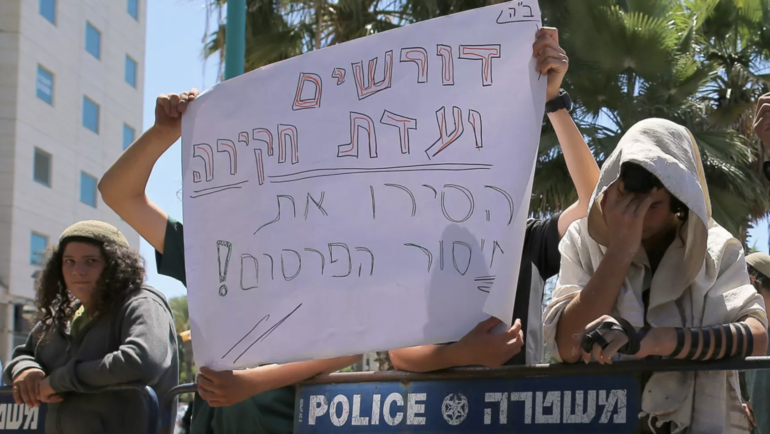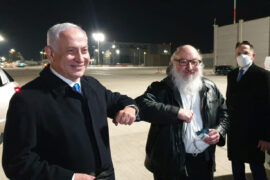The Lod Central District Court ruled Thursday that testimony from Shabak agents regarding physical torture used to extract confessions from defendants in the Duma case will remain permanently sealed from the public.
In July 2015, three members of the Palestinian Dawabsheh family, 18-month-old Ali and his parents, were killed in a fire set by arsonists to their home in Duma.
Several West Bank Jewish boys, mostly minors associated with the “hilltop youth” subculture, were held under administrative detention by the Shabak for extended periods of time as the agency attempted to build a case. Despite a lack of evidence, several of the boys were physically tortured by agents during interrogation sessions.
Although political figures and journalists were slow to speak out for the rights of the boys when they first showed signs of being tortured by their interrogators, the press has more recently come around to seeing the case as an opportunity to shine a spotlight on the Shabak’s overall treatment of detainees.
While Thursday’s ruling was a rejection of the Yediot Aharonot newspaper’s motion to lift the seal in light of findings that the defendants’ abusive treatment harmed the admissibility of aspects of their confessions, the court did grant part of the motion by opening to the press aspects of the trial not related to torture.
The defendants and their families had hoped a mid-July ruling by Israel’s Supreme Court would have paved the way for greater transparency when it comes to the Shabak’s methods of interrogation.
In that ruling, the court ordered the underage defendant released to house arrest following two and a half years of administrative detention. The boy is currently living with his parents and is required to wear an electronic tracking device at all times, as there are additional lesser crimes he’s accused of and the prosecution claims it might still be able to convict him as an accomplice in planning the Duma attack.
Although the trial will now be opened to the public, publishing the minor’s name, picture and identifying details will still be banned.
In June, the Lod Central District Court rejected the confessions elicited under torture from the adult defendant, Amiram ben-Uliel, but confirmed as admissible confessions “given voluntarily” during interrogations at which no “enhanced interrogation” methods occurred.
While justice must obviously be obtained for the Dawabsheh family, there must also be transparency and accountability when it comes to the interrogation methods of Israeli security agencies. In a democratic society, administrative detention and torture cannot be go-to methods for solving crimes, no matter how heinous.
Aside from a potentially urgent “ticking bomb” situation that demands extra-legal interrogation techniques to save lives in real time, these methods of investigation are completely indefensible – especially when used against minors – and undermine Israel’s claim to hold democratic values.
A number of political figures, most notably Naftali Bennett (Bayit Yehudi), had for a long time attempted to defend the Shabak, attacking as hypocrites those who support aggressive interrogation measures for Palestinian prisoners but oppose them when it comes to Jews suspected of political violence.
Israel’s national-religious sector – to which Amiram ben-Uliel and his underage co-defendant belong – should ask itself how turning a blind eye towards these interrogation methods when directed against Palestinians has ultimately led to them being used against our own youth, perhaps a clear example of how the occupation has corrupted Israeli society.
Israel’s methods of combatting Palestinian political violence has not decreased support for such violence within Palestinian society. In fact, the opposite can be said.
And if we see a disparity between the treatment of Jewish and Palestinian prisoners by our security forces, we should correct that disparity not by lowering the moral standard for how we treat Jewish prisoners but by raising the moral standard for how we treat Palestinians.





